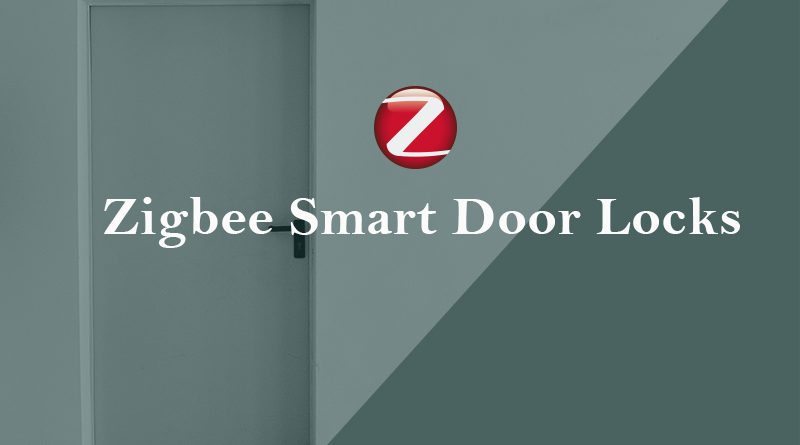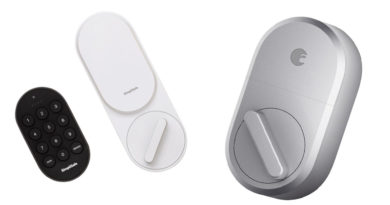Best Zigbee Locks Guide of 2020: Deep Introduction, Complete Comparison Details & Top Picks
Yes, you may have heard of this word “Zigbee”, when you are about to purchase a smart lock for your front door.
But what exactly is a Zigbee smart lock? What are their outstanding features? Can you truly benefit from them?
We attempt to answer the above questions below.
Bump: Recently, we are looking into the differences between Zigbee, Z-Wave, Bluetooth and WiFi smart locks.
And last week, we have introduced the Z-Wave locks and Bluetooth locks.
Today, we will introduce the Zigbee locks and compare the 4 smart lock types.
Content:
#1. What Is a Zigbee Smart Lock
#2. Benefits of Zigbee Smart Lock
#3. Zigbee VS Z-Wave VS Bluetooth VS WiFi Locks
#4. Zigbee Lock Top Picks (with Videos)
#1. What Is a Zigbee Smart Lock & How Does It Work
Zigbee is a robust wireless protocol that operates as a honeycombed mesh network.
You can imagine that the Zigbee mesh network is like a honeycomb, and the honeycomb has numerous nodes (up to 65,000 nodes currently).
Each node can act as a small transmitter that functions in the same way as a router.
And every node can act as a repeater of sorts, and all of the nodes cooperate in the distribution of data — the mesh network.
Even one node fails, the master node and the second node can still communicate by linking to a third node within the connection range (normally between 10–20 meters).
Z-Wave, on the other hand, operates as the tree-structured mesh network. If an upper node fails, the lower nodes will collapse.
With Zigbee, smart devices from different companies can speak the same language, so there is no barrier to communicate with each other.
Rather than connecting to your home WiFi, Zigbee smart locks and other Zigbee-enabled devices communicate with each other via a central hub, like the SmartThings Hub.
Zigbee locks use IEEE 802.15.4 network standard, and operate on the below frequencies:
- 2.4 GHz
- 868 MHz
- 90 MHz
#2. Top 4 Benefits of Zigbee Smart Locks
Zigbee has become almost the leading technology that is used on smart locks for the blow benefits:
1. Super reliability: If one node fails, the mesh network can still run smoothly without being impacted by the “broken” node.
In other words, if one of your Zigbee-compatible smart devices fails, other products can still perform seamlessly without any interruption.
2. Extremely secure encryption: Zigbee smart locks are secured by 128-bit symmetric encryption keys, which is even much more secure than the banks’ online operations.
Zigbee devices have NEVER been hacked.
3. Invincible interoperation: Smart devices that are Zigbee-enabled can work seamlessly with each other, even they are from different companies.
Thus, you can have more smart home device options without limiting only 1 brand.
4. Hard-to-beat power-saving feature: Adopting super low-power technology, Zigbee battery-powered smart locks can work years, theoretically, even 10 years.
The green power-saving Zigbee locks free you from changing batteries on a daily basis.
#3. Zigbee VS Z-Wave VS Bluetooth VS WiFi Smart Locks: Detailed Comparison Details (with a Table)
We will share the full comparison details on the 4 smart lock types, so that you can see their advantages and disadvantages respectively.
You can also skip to the table version under the words below.
1. Zigbee VS Z-Wave Smart Locks
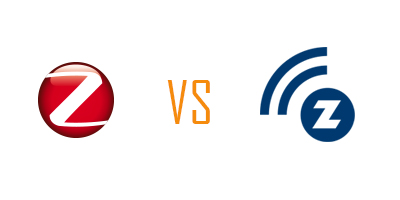
Compared with Z-Wave smart locks, Zigbee smart locks have the below advantages:
• Zigbee locks adopt much more secure encryption than the Z-Wave type.
• If one of the Zigbee products fails, other devices can still function perfectly. The Z-Wave devices will crash if one of the products fails to function.
• Zigbee protocol can support up to 65,000 nodes, while Z-Wave technology can support up to 256 nodes or even less.
• Zigbee smart locks will consume less battery power than the Z-Wave type.
It doesn’t mean that Zigbee smart locks are perfect in every way. They still have several disadvantages when comparing with Z-Wave locks.
• The connection distance of Z-Wave is up to 30 meters (indoors) and 100 meters (outdoors), while Zigbee supports only up to 20 meters.
• Zigbee smart locks would be much more expensive than Z-Wave locks.
2. Zigbee VS Bluetooth Smart Locks
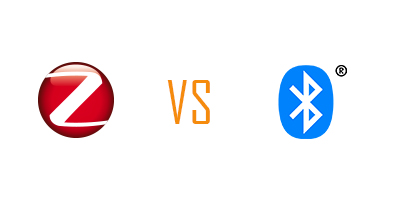
Compared with Bluetooth locks, Zigbee type provides the following outstanding strengths:
• Zigbee smart locks provide longer connection distance (up to 20 meters), while Bluetooth type supports up to 12 meters, since Bluetooth locks use point-to-point communication way.
• Zigbee supports more devices than Bluetooth or BLE.
Bluetooth smart locks can overshadow the Zigbee locks in the blow aspects:
• Bluetooth locks require no hubs to function, while Zigbee type needs a central hub to work.
• Bluetooth type is much cost-saving than the Zigbee locks.
3. Zigbee VS WiFi Smart Locks
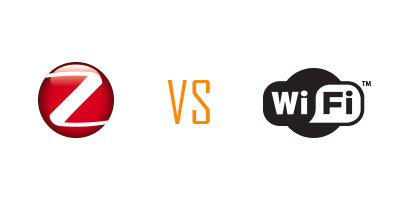
Zigbee smart locks overshadow the WiFi lock type in the below points:
• Zigbee adopts almost the most secure encryption to keep the smart locks from being hacked.
WiFi door lock type would be much more prone to hacking.
• Zigbee consumes even less power than the WiFi type.
• Zigbee can supports more products than the WiFi type.
• Zigbee locks’ connection signal would be much more stable.
In contrast, WiFi smart locks can beat the Zigbee type in:
• The speed that WiFi smart locks transmit data is much faster than that of Zigbee type.
• You can purchase WiFi smart locks and connect them to your home router without any hub needed.
Zigbee smart locks, on the other hand, need a central hub.
• WiFi smart locks are much more widespread and cost-saving than the Zigbee type.
Zigbee VS Z-Wave VS Bluetooth VS WiFi Smart Locks (Table Version)
#4. Zigbee Smart Locks Top 3 Picks (with Videos)
Since Zigbee gate locks provide truly hard-to-beat features, they have become a new trend in the smart home field.
You can check the blow top 3 picks for your recommendations.
1. Schlage BE468GBAK Zigbee Smart Lock Deadbolt
Zigbee-certified
Lock and unlock from anywhere
Fingerprint-resistant touchscreen
Lifetime mechanical/finish warranty
Compatible with Zigbee, you can use this Schlage smart lock with other Zigbee devices to build a smart home.
This Zigbee lock also works with Alexa, so that you can control it with your voice, a hands-free way!
This smart lock is battery powered, and Zigbee connection way can save the power so you don’t need to change the battery frequently.
You can watch the video below to learn more details about this Zigbee lock.
2. Yale Assure Lock Touchscreen Deadbolt That Supports ZigBee
Works with Alexa
Works with Zigbee smart home or alarm systems including SmartThings, Echo Plus and Iris
Voice-guided assistance
Weather resistant
Yale Assure smart lock works with Zigbee smart home or alarm systems, such as SmartThings, Echo Plus, Iris, etc.
You can use your voice to lock or unlock this smart lock by integrating it with the Echo Plus (no hubs needed) or other Alexa devices (a hub like SmartThings needed).
You don’t need to spend much time installing this door lock. Just with a screwdriver, you can replace the existing deadbolt.
You can watch the video below to learn how to install this Zigbee smart lock.
3. Kwikset Smartcode 914 Zigbee Smart Door Lock
Works with Alexa
Easy install
SmartKey Security with re-key technology
Kwikset Smartcode 914 lock works on Zigbee. Thus, you can integrate this smart lock with other Zigbee-enabled devices.
This smart lock supports Alexa, so you can control it with your voice easily.
With a screwdriver and 4 AA batteries (sold separately), you can install this smart lock easily!

